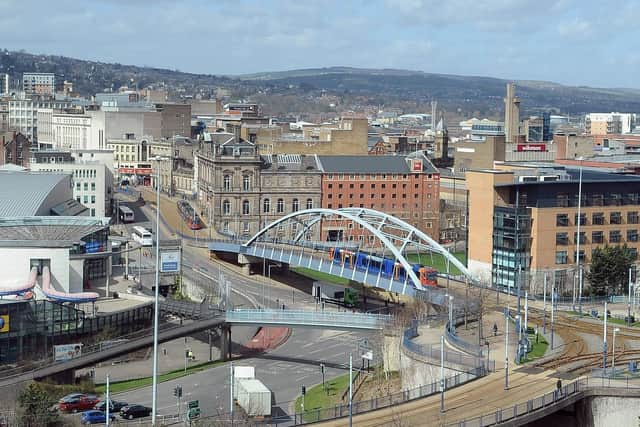Jobs need to change to make cities like Sheffield greener and cleaner - Dr Will Eadson
For many of us these will be quite minor changes. For instance, things we have become used to over the last two years, like less travel for work and meeting online; or it might mean using automated tools to conduct carbon appraisals of potential new projects or products before making decisions.
In other sectors the core principles of professions will stay the same, but they will be applied in different ways: planners and architects developing new ways of planning and designing cities for example.
Advertisement
Hide AdAdvertisement
Hide Ad

At the other end of the scale there is a need for huge numbers of new jobs for people with skills to implement the range of measures needed to decarbonise our buildings, industry and transport. It has been estimated that the UK needs 400,000 new workers in the energy industry alone over the coming decade to meet the challenge of reconfiguring energy systems for a zero carbon future. We need hundreds of thousands of workers to retrofit the UK’s notoriously leaky homes too.
The Centre for Regional Economic and Social Research (CRESR) at Sheffield Hallam University has been carrying out research with low carbon energy businesses to understand employment and skills implications of moving to low carbon energy systems in cities.
We looked in detail at six low carbon energy technologies and their supply chains, ranging from heat pumps to hydrogen. We found huge potential for job creation, especially for low carbon heat engineers and insulation installers as well as for those with transferable engineering and construction skills.
Many of these jobs offer good pay and career prospects – average salary for workers in the European renewable energy sector is around £40,000 for example – and skilled trades like heat pump installation are also currently at a premium.
Advertisement
Hide AdAdvertisement
Hide AdBut businesses participating in our research on low carbon energy consistently told us about shortages of skilled workers to meet the demand for these technologies. This is particularly acute in sectors that need to ramp up very quickly to meet government targets.
For instance, the UK government has pledged that 600,000 heat pumps will be installed per year by 2028, 20 times more than current installation rates. But education and training provision in most cities across England is not geared up to meet this level of demand and businesses participating in our research said that they could not find workers with the relevant skills and qualifications.
It is important that these new jobs and retraining needs are managed in a fair and equitable way as part of a ‘just transition’ to net zero. We are still living with the negative effects of deindustrialisation on many of the UK’s cities, and we need to learn the lessons from the 1970s and 80s on how to manage periods of rapid economic change more equitably.
This means we need to put in place comprehensive programmes to reskill people working in industries vulnerable to decarbonisation (like oil and gas industries) as well as to support left behind people in left behind places into ‘green’ work. Research by the Grantham Institute estimates around one in 10 jobs will require reskilling to meet the needs of zero carbon transition.
Advertisement
Hide AdAdvertisement
Hide AdSimilarly, we need to remember green jobs aren’t necessarily good jobs. Workers in low carbon and environmental sectors are often subject to the same pressure as many other industries. Sheffield Hallam University research published earlier this year exposed the use of forced labour in solar panel supply chains, and there have also been exposes of child labour in cobalt extraction, important for producing batteries for electric vehicles and energy storage.
We need to remake our cities so that they are clean, green and zero carbon. This requires retraining, new jobs and new approaches to work in all professions. But it also offers opportunity to rethink what we work for and the implications of our consumption habits for the work that others do – even those products that help us be green and clean.
Will Eadson is Professor of Urban and Regional Studies at the Centre for Regional Economic and Social Research (CRESR), Sheffield Hallam University.
